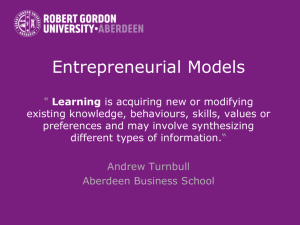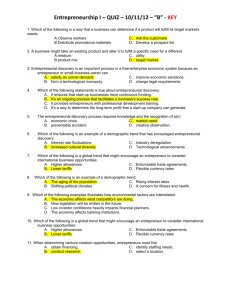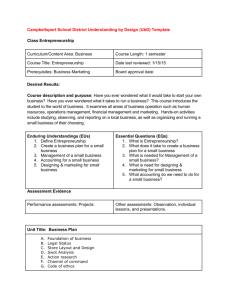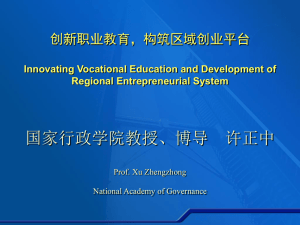here - UNC Charlotte ADVANCE
advertisement
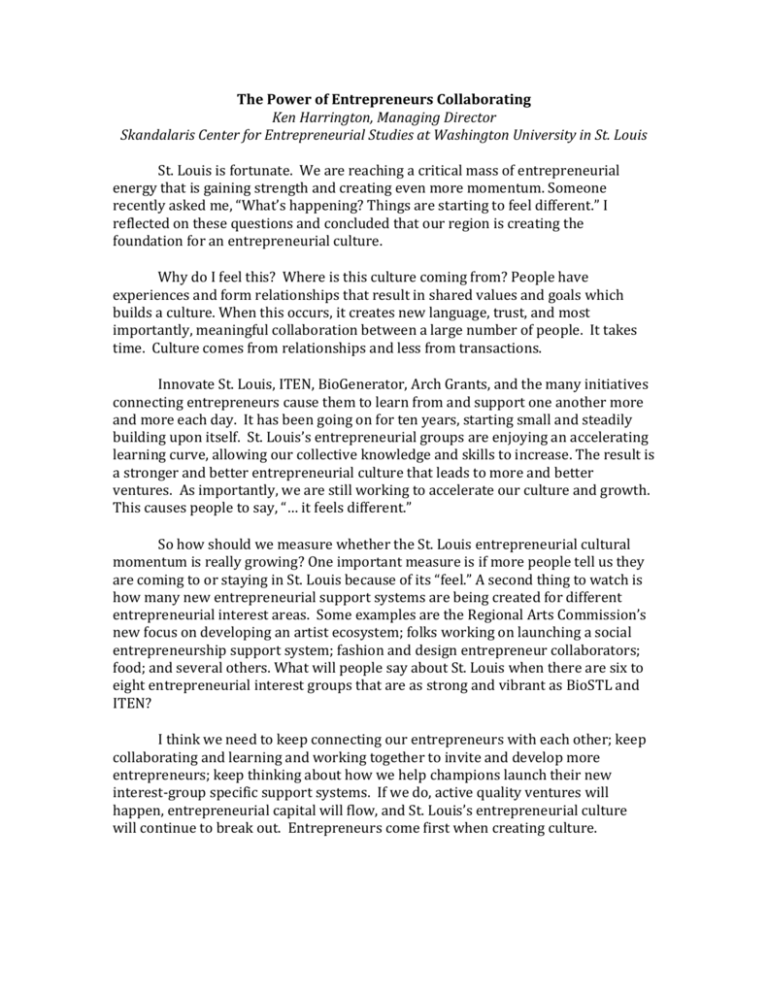
The Power of Entrepreneurs Collaborating Ken Harrington, Managing Director Skandalaris Center for Entrepreneurial Studies at Washington University in St. Louis St. Louis is fortunate. We are reaching a critical mass of entrepreneurial energy that is gaining strength and creating even more momentum. Someone recently asked me, “What’s happening? Things are starting to feel different.” I reflected on these questions and concluded that our region is creating the foundation for an entrepreneurial culture. Why do I feel this? Where is this culture coming from? People have experiences and form relationships that result in shared values and goals which builds a culture. When this occurs, it creates new language, trust, and most importantly, meaningful collaboration between a large number of people. It takes time. Culture comes from relationships and less from transactions. Innovate St. Louis, ITEN, BioGenerator, Arch Grants, and the many initiatives connecting entrepreneurs cause them to learn from and support one another more and more each day. It has been going on for ten years, starting small and steadily building upon itself. St. Louis’s entrepreneurial groups are enjoying an accelerating learning curve, allowing our collective knowledge and skills to increase. The result is a stronger and better entrepreneurial culture that leads to more and better ventures. As importantly, we are still working to accelerate our culture and growth. This causes people to say, “… it feels different.” So how should we measure whether the St. Louis entrepreneurial cultural momentum is really growing? One important measure is if more people tell us they are coming to or staying in St. Louis because of its “feel.” A second thing to watch is how many new entrepreneurial support systems are being created for different entrepreneurial interest areas. Some examples are the Regional Arts Commission’s new focus on developing an artist ecosystem; folks working on launching a social entrepreneurship support system; fashion and design entrepreneur collaborators; food; and several others. What will people say about St. Louis when there are six to eight entrepreneurial interest groups that are as strong and vibrant as BioSTL and ITEN? I think we need to keep connecting our entrepreneurs with each other; keep collaborating and learning and working together to invite and develop more entrepreneurs; keep thinking about how we help champions launch their new interest-group specific support systems. If we do, active quality ventures will happen, entrepreneurial capital will flow, and St. Louis’s entrepreneurial culture will continue to break out. Entrepreneurs come first when creating culture.

